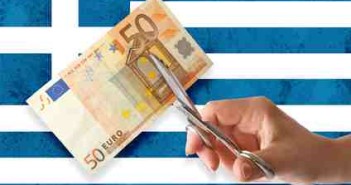After winning a vote of confidence in the early hours of Saturday morning, Greece’s Prime Minister George Papandreou went to meet the president of the Republic, Karolos Papoulias and spoke about a new coalition government in order to secure a second bailout.
The main opposition party, New Democracy, doesn’t want a unity government led by Papandreou or any other politician from the PASOK ruling party. This was clear from the start. But now it seems that also other small parties are not willing to cooperate with Papandreou.
Adriana Flores Bórquez reports (in Spanish, Google Translate) that all opposition parties asked Papandreou to step down. At this point, he cannot count on support from his diminishing party members for new policy measures.
Fresh elections?
If the country goes to elections now, it is hard to see the caretaker government push forward new moves that will not be popular with the people. Time is critical.
He has one achievement though: the main opposition party found itself supporting the recent bailout agreements after resisting for months. This is a result of the referendum call by Papandreou, that was later cancelled. But perhaps the success in cornering the opposition and getting some support form the people was already too much and not so brilliant after all.
The cancellation of the referendum helped the euro, but the ongoing political instability still poses a threat. And in addition, the political instability in Italy and its soaring unsustainable yields provide a far bigger risk.
One thing is certain: the debt drama will continue to rock the euro. For updated technical analysis and upcoming events, see the euro dollar forecast.



